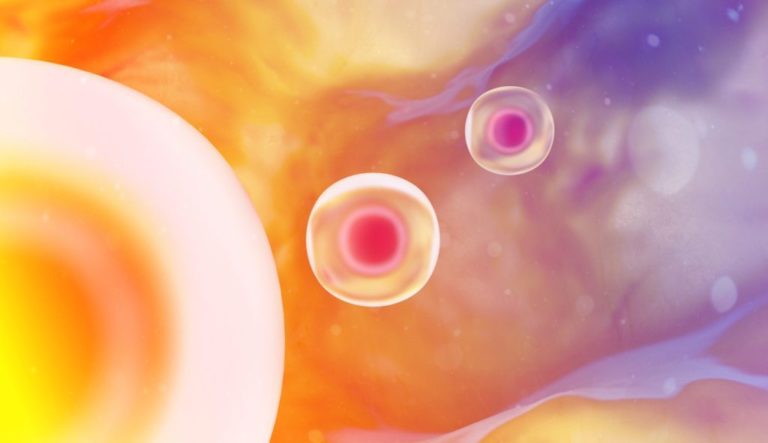It is published by BioMed Central Ltd.. The overall rank of Stem Cell Research and Therapy is 2021. According to SCImago Journal Rank (SJR), this journal is ranked 1.599. SCImago Journal Rank is an indicator, which measures the scientific influence of journals.
Similarly, Has stem cell therapy been successful?
Stem cell treatment has achieved positive results in over 45% of patients, according to one trial. Patients saw improvement in less than 6 months, which compares quite well with back surgery that usually involves very long recovery times.
Is stem cell therapy still being researched? Currently, some stem cell-based therapies utilizing adult stem cells are clinically available and mainly include bone marrow transplants of hematopoietic stem cells and skin grafts for severe burns (23).
Thereof, What does God say about stem cell research?
Assemblies of God: The Assemblies of God oppose embryonic stem cell research, saying, « Potential medical benefits do not justify destroying human life at any stage of development. » The Assemblies also oppose somatic cell nuclear transfer on the basis that it involves « the creation and destruction of human life for …
Why is stem cell research controversial?
However, human embryonic stem cell (hESC) research is ethically and politically controversial because it involves the destruction of human embryos. In the United States, the question of when human life begins has been highly controversial and closely linked to debates over abortion.
Why are people against stem cell research?
Some opponents of stem cell research argue that it offends human dignity or harms or destroys human life. Proponents argue that easing suffering and disease promotes human dignity and happiness, and that destroying a blastocyst is not the same as taking a human life.
Why we shouldn’t use stem cells?
Opponents argue that the research is unethical, because deriving the stem cells destroys the blastocyst, an unimplanted human embryo at the sixth to eighth day of development. As Bush declared when he vetoed last year’s stem cell bill, the federal government should not support “the taking of innocent human life.”
What are the ethical issues with stem cell therapy?
Other important ethical issues relate to informed consent of both donors of gametes and embryos as well as recipients of stem cells and stem cell products. Further, there has been some concern related to the commercialization of the process, justice, and the responsible conduct of research.
What are the ethical issues of stem cells?
In the case of embryonic stem cell research, it is impossible to respect both moral principles.To obtain embryonic stem cells, the early embryo has to be destroyed. This means destroying a potential human life.
Why is stem cell therapy unethical?
Opponents argue that the research is unethical, because deriving the stem cells destroys the blastocyst, an unimplanted human embryo at the sixth to eighth day of development. As Bush declared when he vetoed last year’s stem cell bill, the federal government should not support “the taking of innocent human life.”
What are the negative effects of stem cell therapy?
Stem Cell or Bone Marrow Transplant Side Effects
- Mouth and throat pain. …
- Nausea and vomiting. …
- Infection. …
- Bleeding and transfusions. …
- Interstitial pneumonitis and other lung problems. …
- Graft-versus-host disease. …
- Hepatic veno-occlusive disease (VOD) …
- Graft failure.
What are 3 reasons why we should not do embryonic stem cell research?
- Stem cell technologies would be very expensive and available only to rich countries and to rich people.
- Stem cell research would deviate efforts from other health strategies.
- Interference with the genome involves ‘playing God’
- Somatic cell nuclear transfer is immoral as it involves creating embryos only to destroy them.
What are the disadvantage of stem cells?
The main disadvantage of stem cell research has to do with the way that they’re acquired-that is, it involves the destruction of human embryos. This makes it immoral for those who believe that life begins at contraception.
What are some legal issues with stem cell research?
The federal government may continue to pay for controversial human embryonic stem cell research, a federal appeals court ruled Friday. The three-judge panel says the government has correctly interpreted a law that bans the use of federal funds to destroy human embryos for research.
What impact do stem cells have on the environment?
Stem Cells Help Researchers Study the Effects of Pollutions on Human Health. A recent study published in the Journal of Environmental Sciences (JES) shows that embryonic stem cells could serve as a model to evaluate the physiological effects of environmental pollutants efficiently and cost-effectively.
How do stem cells benefit society?
People who might benefit from stem cell therapies include those with spinal cord injuries, type 1 diabetes, Parkinson’s disease, amyotrophic lateral sclerosis, Alzheimer’s disease, heart disease, stroke, burns, cancer and osteoarthritis.
Why is stem cell therapy good?
Studies have discovered that stem cell therapy can help enhance the growth of new healthy skin tissue, enhance collagen production, stimulate hair development after incisions or loss, and help substitute scar tissue with newly developed healthy tissue.
Is stem cell research ethical or unethical?
There are no ethical or moral concerns with the appropriate use of adult stem cells. However, human embryonic stem cell (HESC) research is unethical since it results in the destruction of human life for research purposes.
What are the risks and challenges of gene therapy and stem cell research?
Gene therapy has some potential risks. A gene can’t easily be inserted directly into your cells.
…
Risks
- Unwanted immune system reaction. Your body’s immune system may see the newly introduced viruses as intruders and attack them. …
- Targeting the wrong cells. …
- Infection caused by the virus. …
- Possibility of causing a tumor.
What is the advantage and disadvantage of stem cell therapy?
Table 1
| Stem cell type | Limitations | Advantages |
|---|---|---|
| Embryonic stem cells | (1) Ethical dilemmas (2) Possible immune rejection after implantation (3) Only a small number of differentiated cardiomyoctes can be generated (4) May lead to teratocarcinomas (5) Genetic instability | Can differentiate into cells of all three germ layers |
What is the current policy on stem cell research 2020?
Stem cell research is legal in the United States, however, there are restrictions on its funding and use. Currently, the only stem cells now used to treat disease are from blood cell-forming adult stem cells found in bone marrow.
What is the law today on stem cell research?
Federal law. No federal law ever did ban stem cell research in the United States, but only placed restrictions on funding and use, under Congress’s power to spend.
How does stem cell research affect society?
Research with embryonic stem cells may lead to new, more effective treatments for serious human ailments and alleviate the suffering of thousands of people. Diseases such as juvenile diabetes, Parkinson’s disease, heart failure and spinal cord injuries are examples.
What is stem cell?
What are stem cells? Stem cells are the body’s raw materials — cells from which all other cells with specialized functions are generated. Under the right conditions in the body or a laboratory, stem cells divide to form more cells called daughter cells.
What are embryonic stem cells simple?
Embryonic stem cells (ESCs) are stem cells derived from the undifferentiated inner mass cells of a human embryo. Embryonic stem cells are pluripotent, meaning they are able to grow (i.e. differentiate) into all derivatives of the three primary germ layers: ectoderm, endoderm and mesoderm.
Join TheMoney.co community and don’t forget to share this post !





